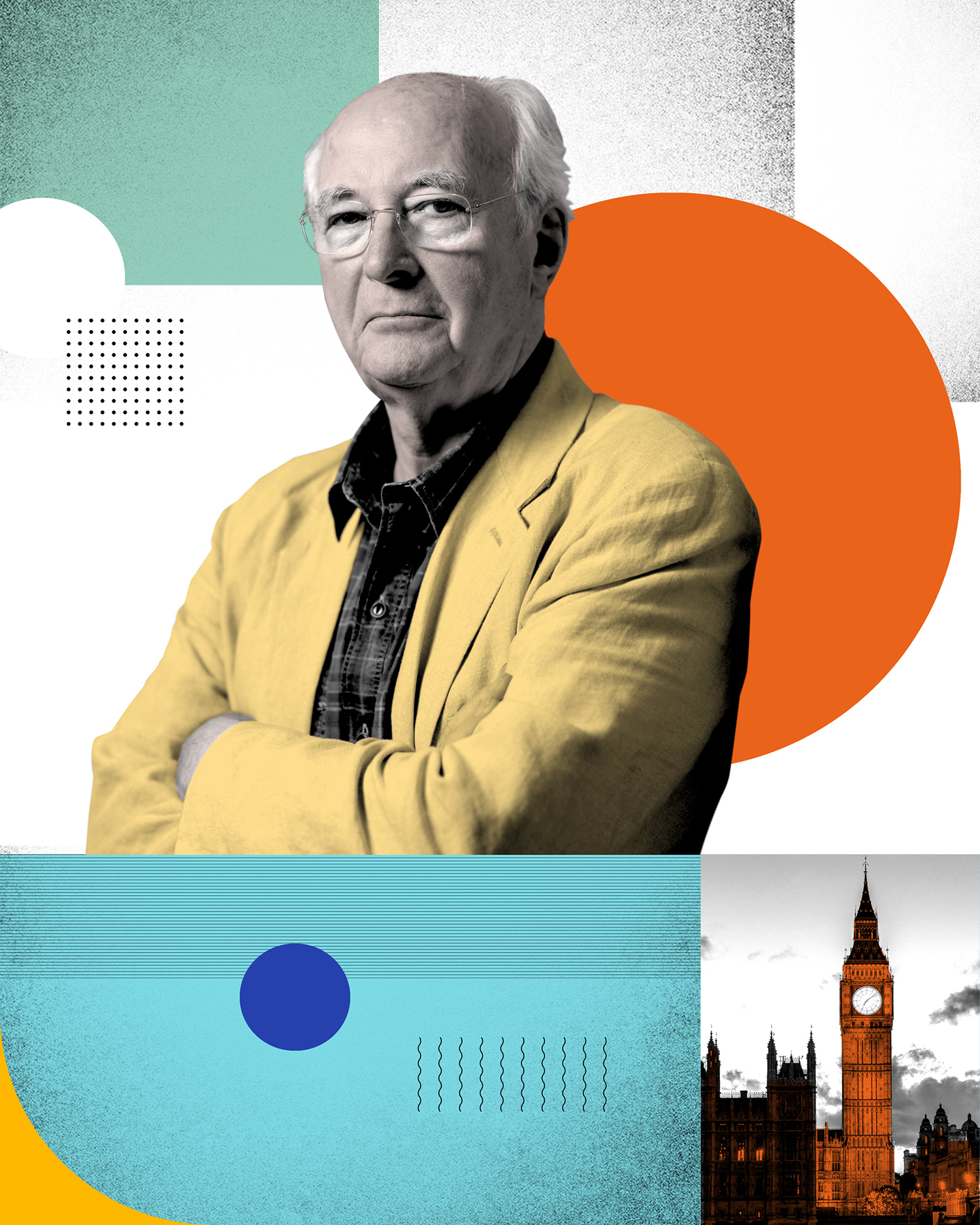- Home |
- Search Results |
- Philip Pullman: ‘It’s all got to change’

It’s all got to change. If we come out of this crisis with all the rickety, fly-blown, worm-eaten old structures still intact, the same vain and indolent public schoolboys in charge, the same hedge fund managers stuffing their overloaded pockets with greasy fingers, our descendants will not forgive us. Nor should they. We must burn out the old corruption and establish a better way of living together.
It’s fitting that the Houses of Parliament are already falling down. We should begin there and tear the place down entirely, to rebuild it on a better plan. All the absurd ceremony, all the pegs for hanging up your sword, all the fake drama created by deliberately not having enough seats for every member and crowding through lobbies to vote, all the contemptible pomposity that only serves to tickle the fancy of those addicted to history-porn, the blazing stupidity of maintaining seats for hereditary peers – away with it.
And let’s reform the voting system. At the very least, let’s do that without delay. It’s no wonder that people feel disconnected from politics when most of us live in safe seats, and might as well not vote at all. We must be able to see that our opinions are accurately reflected in the composition of our government, not completely disregarded as they are now. So it might lead to coalitions: excellent. Discussion, compromise, working together are exactly how to run a decent country.
'Now the circumstances have changed so profoundly, we must hold back on Brexit itself'
Then we must educate our children properly. It is quite extraordinary that one school, Eton College, should have such a hold on the high places of politics. It’s also extraordinary, and scandalous, that the magnificent facilities and opportunities that the public schools (the commercial schools, as A.H. Halsey liked to call them) offer to their pupils are not equally available to every child. The present dreary culture of mechanistic tests and meaningless league tables and invented fetishes like ‘fronted adverbials’ should be swept away like filthy cobwebs; children need light and drama and music and poetry and science and art and curiosity and libraries and plenty of grass to play on, and plenty of time to run about and fool around. We should start by abolishing the tax privileges the commercial schools benefit from by pretending to be charities, and pour money into the schools most children go to.
If it turns out to be true that the government for Brexit-related reasons refused to take part in the procurement advantage offered by EU governments, thus making it harder for the NHS to deal with the Covid-19 and placing thousands of people at risk, the entire front bench ought to resign. But of course they won’t: they have not a single grain of shame. So they should be arraigned on charges of conspiracy to murder. Nothing less will do. They knew the risks, and thought they’d rather appease the foaming zealots of Brexit.
Lee Child: 'We will look back and think how lucky we were'
Malorie Blackman: 'Covid-19 is revealing who society cannot be without'
And now the circumstances have changed so profoundly, we must hold back on Brexit itself. There are so many clear advantages to being in the EU, and the benefits of leaving are so tenuous and fanciful, that we must revisit the referendum and hope that this time the Labour Party under a new leader will play a proper part in the argument; and that the lies, the cheating, the flagrant and shameless mendacity will be fully exposed by a strong, passionate, and focused campaign to remain.
There’s so much more that needs to be done, but this is how I think we should start. The way we allow ourselves to be governed at the moment looks like the triumph of habit over putrefaction. We can’t go on like this.
Perspectives is a series of essays from Penguin authors offering their response to the Covid-19 crisis. A donation of £10,000 towards booksellers affected by Covid-19 has been made on behalf of the participants. Read more of the essays here.